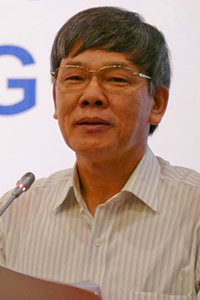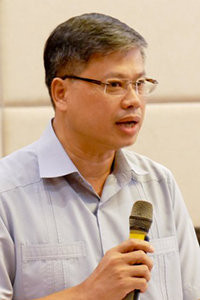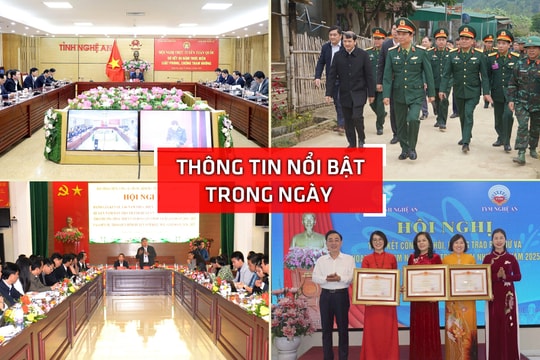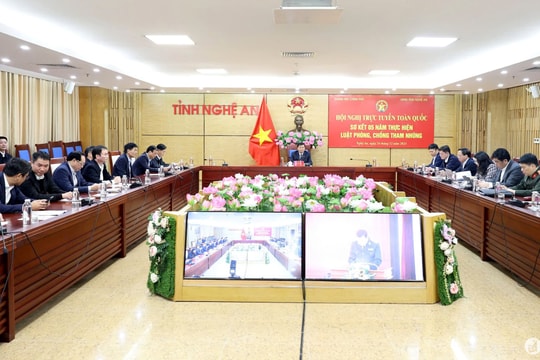Anti-Corruption Law Project: Taking the Wrong Medicine
The workshop on major orientations for comprehensively amending the Law on Anti-Corruption held in Quang Ninh on August 25 attracted the attention and discussion of many experts and National Assembly delegates.
Touch is "sensitive"
Director of the Legal Department - Government Inspectorate Nguyen Van Kim affirmed that the comprehensive revision of the Law on Anti-Corruption affects the stability and comprehensive development of the country, which is a major policy of the Party. However, the current Law on Anti-Corruption has many limitations and shortcomings, typically the provisions on transparency are not comprehensive and lack measures to ensure implementation, especially the lack of clarity on principles, forms, contents and responsibilities for implementing transparency.
Regulations on asset and income transparency have not helped control income fluctuations; there are no clear regulations on the use of asset declarations for the purpose of preventing, detecting and handling corruption; there is a lack of regulations on handling assets and income that are not reasonably explained...
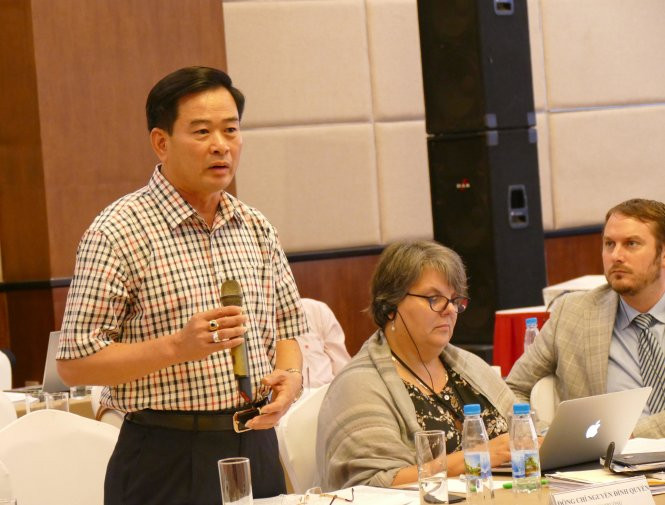 |
| Dr. Nguyen Dinh Quyen - Institute of Legislative Studies - said the above at the workshop to contribute ideas to comprehensively amend the Law on Anti-Corruption on August 25 - Photo: LE KIEN |
Another new point proposed in the bill is that if through verification, it is discovered that assets and income are greater than the declared assets and income, the agency or unit controlling assets and income is responsible for requesting the tax authority to consider, handle and collect taxes if the person who is obliged to declare reasonably explains the origin of those assets; or initiate a civil lawsuit in court to make a judgment on these assets if they cannot reasonably explain.
|
Dr. Tran Duc Luong, former Deputy Inspector General of the Government, said that the regulations on publicity have made progress with specific issues regarding the process of building policies, laws, regulations on speaking and providing information...
“But there is a situation of abusing regulations such as national secrets, technological secrets, business secrets, personal secrets, especially abusing the word “sensitive” to avoid responsibility for providing information and accountability,” Mr. Luong pointed out.
He believes that there are many regulations on publicity but little transparency: "Publicity without accountability cannot be transparent.
However, the current law lacks the phrase “accountability” with its necessary connotation and specific provisions. Such limitations make foreign experts comment that Vietnam’s Law on Anti-Corruption is like a toothless tiger.
Dr. Luong proposed to add "public regulations on organization, staffing, personnel work and policy implementation for cadres, civil servants, public employees and workers need to be more specific and detailed, especially the recruitment, appointment, rotation of cadres, civil servants, public employees and spending for the activities of leaders of agencies, organizations and units.
Currently, corruption in personnel work and group interests in personnel work are increasingly attracting the attention of many people and the whole society.
"Money laundering is easy"
Expressing agreement with Mr. Luong - Vice Chairman of the National Assembly's Foreign Affairs Committee Nguyen Sy Cuong said: "Agencies and units have published a lot of information, but much of it is not transparent. Recently, there was an unusual death of seafood in the Central region. At first, officials from the Ministry of Natural Resources and Environment declared very clearly that "it was not because of Formosa, it was red tide", but then finally concluded that it was because of Formosa's illegal discharge. I have not seen anyone punished for lack of transparency, nor have I seen anyone apologize for disclosing wrong information like the case just mentioned."
|
After many years as a National Assembly delegate, Mr. Cuong confided that he felt tired of having to amend the law but without much effect.
“Sometimes I think we don’t need to amend this law, let’s just implement its regulations first. We have so many regulations but they are not implemented. How can we be transparent if we declare our assets only internally and then stamp them confidential? What’s the point of putting the declaration in a drawer?
I would like to say, do we dare to announce to the whole people the assets of this comrade or that comrade?" - Mr. Cuong pondered.
Equally harsh, the new director of the Institute for Legislative Studies, Dr. Nguyen Dinh Quyen, said: "I read the draft and felt a bit sad, it felt like the bill was giving the wrong medicine.
The project continues to spread the curtain of anti-corruption measures. To fight corruption, the first condition is to control assets and income. They keep talking about declaration but it is useless, while the United Nations Convention considers unexplained assets as corrupt assets.
Their countries do not have anti-corruption laws, only laws to control assets and income. Any citizen is controlled. When I went to South Africa, people said that criminal groups there stole money, but if it was not South African money, they had to throw it away because they could not spend it.
Mr. Quyen analyzed and suggested: “You keep talking about accountability, but if I were the provincial party secretary, I would be stupid enough to put assets in my name. My children, my wife, and my brother are in business, so I leave the money there, money laundering is very easy. It is impossible to implement accountability measures if all people are not controlled for assets and income.
We can take inventory and census, so why can't we take inventory and control the assets of the whole society? If we can't do that, assets will easily transfer from one person to another."
According to Tuoi Tre

